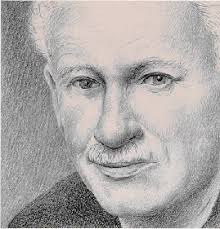The rhetoric of rules places a heavy burden on all of us. Organizations want more data than can be meaningfully used, with few incentives to strive for brevity.
A few years ago law professor Alan Dershowitz described one litigation strategy used by large corporate defendants as “papering the other side to death.” He meant, of course, that a lawyered-up organization can intimidate a plaintiff by requiring so much data and information that the cost of a “win” becomes too risky and time-consuming.
 The phrase has always stuck with me as a perfect representation of a much broader and common bureaucratic document completion documents that take up light years of a hapless consumer’s time. Of course, paper has often been replaced by online documents forms. But the effect is the same, and we all have our stories. My recently completed online form for a COVID booster shot fell just short of the time needed to sign the papers to buy a house. Even after checking the “Male” and age boxes, the form would not allow me to go forward to the next page until I indicated that I was not pregnant. Similarly, friends enrolling in Social Security talk of months of efforts to reach an agent. It’s gotten so bad that AARP, the people who write about retirement, note that seniors may need to hire a professional to access the money from the agency they earned in their working years.
The phrase has always stuck with me as a perfect representation of a much broader and common bureaucratic document completion documents that take up light years of a hapless consumer’s time. Of course, paper has often been replaced by online documents forms. But the effect is the same, and we all have our stories. My recently completed online form for a COVID booster shot fell just short of the time needed to sign the papers to buy a house. Even after checking the “Male” and age boxes, the form would not allow me to go forward to the next page until I indicated that I was not pregnant. Similarly, friends enrolling in Social Security talk of months of efforts to reach an agent. It’s gotten so bad that AARP, the people who write about retirement, note that seniors may need to hire a professional to access the money from the agency they earned in their working years.
There seems to be a natural tendency to bureaucratize even the simplest processes, ostensibly to be “uniform” and complete. Most of this laid-on complexity seems to be in response to lawyers, who can imagine nearly limitless ways an organization might be sued for not asking the right questions. Few organizations hold their staffs to what would be a useful rule I tried to adopt as the Chair of an academic Department, namely, to try to hold endless requests for reports and information to responses one page written in comprehensible English. There were raised eyebrows in meetings when other chairs noticed my paltry one page passed along to the Dean in the midst of their much thicker reports. And, truth to be told, I did screw up the department budget in my quest for brevity.
There seems to be a kind of rules function within organizations that functions to mystify others into compliance. For example, no one reads the “conditions of use” fine-print attached to nearly every downloaded application. But the sheer volume of the legalese lends authority to the source. If you don’t like a product, you have at least been “papered” with warnings and caveats.
These days the process of taking your self or your car in for service will include a long session for data entry. The front desk clerk taking down your information is now likely to go through a prolonged set of questions that leaves little time for a description of the problem that you want solved. Filling in forms seems to be a primary function that now exists for its own sake, or because an organization sees itself as mostly in the data management business.
Think of who gets hired and promoted in the organizational world: policy specialists, compliance officers, lawyers, professional writers, contract law specialists, employees charged with reviewing procedures, and especially organizational members–some with OCD tendencies–that see any free choice as something that can be turned into procedure.
![]()
The pedant in all of us loves to make guidelines, rubrics, checklists, worksheets, mission statements, instructions, directives, standards , criteria, minimal requirements, qualifications and certifications.
![]()
Any procedure can be turned into a process that must be nailed down in multiple “steps.” Organizational culture naturally wants uniformity, which is not itself a bad thing. The problem is that the folks who write the rules seem to self-select, forming groups who are all too willing to “paper” the rest of us.
Alas, this compulsion toward overwrought rule-making has not produced a comparable group of specialists motivated to reverse the process. So organizational culture typically embraces a snowballing accumulation of regulations. All of the accumulating pixels and paper serve as evidence of high productivity.
Even college professors aren’t immune from this tendency, especially when setting up rules defining the work status of their colleagues. The pedant in all of us loves to make guidelines, rubrics, checklists, worksheets, mission statements, instructions, directives, standards , criteria, minimal requirements, qualifications and certifications. People who might better spend their time on scholarship often drift into generating handbooks of rules for even the most simple of professional tasks, such as observing a younger colleague’s teaching. The arc of a college teacher’s professional career is now tracked, classified, quantified, compared against a rubric, assessed by insiders, assessed by outsiders, tested with online questionnaires, burdened with filings to outside agencies, and itemized in reports to higher-ups. How lucky Albert Einstein was to find refuge not exactly at Princeton University, but at the more innovative Institute for Advanced Study next door.

Another temporary resident at the the Institute–a haven for free thinkers–was rhetorician Kenneth Burke, who once described the tendency to over-produce regulatory flotsam as “the bureaucratization of the imaginative.” It’s a perfect phrase. Reining in creativity by “regularizing” work simplifies organizational life, but has a deadening effect on innovators and all of us who must negotiate our way through the labyrinth-like rules thought up by the organizational mind. In effect, the rhetoric of rules places a heavy burden on the most creative among us, too often leading to the redefinition of success as compliance rather than initiative.
![]()


 Anyone in an open society has the advantage of seeing what Putin and his nation cannot. One of the glories of an open society is that information travels easily and mostly unencumbered.
Anyone in an open society has the advantage of seeing what Putin and his nation cannot. One of the glories of an open society is that information travels easily and mostly unencumbered.
 France 24
France 24 BBC (U.K.)
BBC (U.K.) Agence France-Presse (AFP)
Agence France-Presse (AFP) Associated Press
Associated Press MSNBC/NBC
MSNBC/NBC CNN
CNN
 NHK (Japan)
NHK (Japan) Washington Post
Washington Post Reuters
Reuters The New Yorker
The New Yorker Deutsche Welle (Germany)
Deutsche Welle (Germany) The Guardian
The Guardian